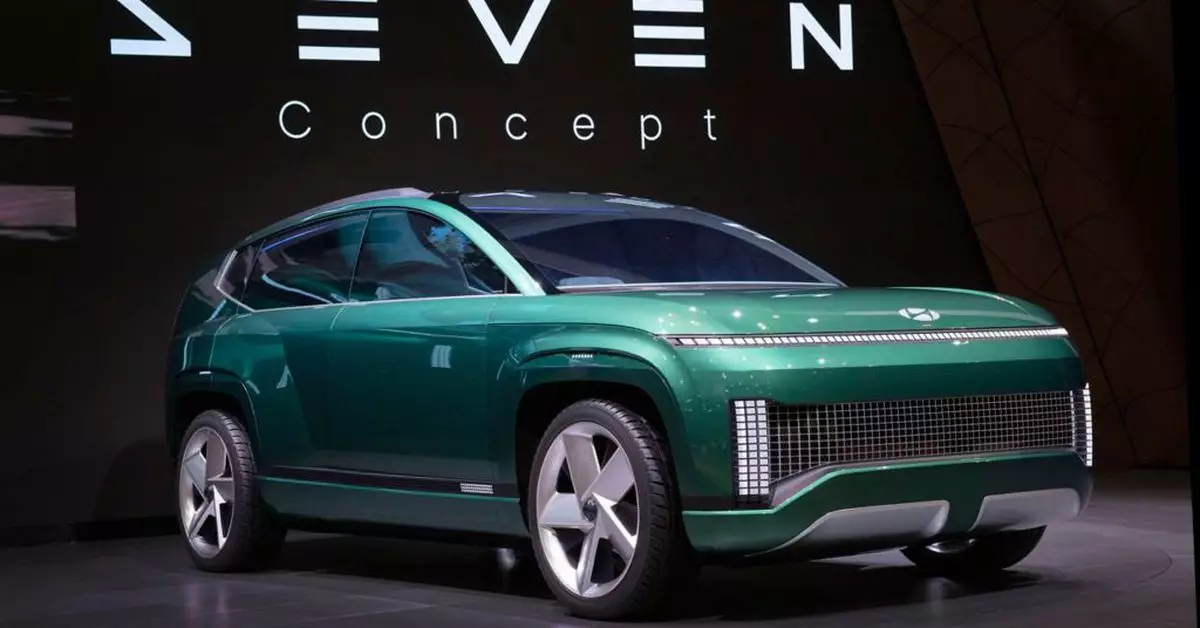Hyundai has recently announced their plans to introduce a new electric vehicle, the Ioniq 9, to the US market. This three-row SUV will be manufactured at the company’s factory in Georgia, showcasing Hyundai’s commitment to expanding its presence in the electric vehicle market. While other automakers may be hesitant to invest in EVs due to slowing demand, Hyundai remains steadfast in its goal to gain a larger share of the plug-in market by introducing new vehicles in popular segments.
The Ioniq 9 will be based on the Concept Seven, which was initially revealed in 2021. This concept is built on Hyundai’s Electric-Global Modular Platform (E-GMP), the same platform that underpins other successful models such as the Ioniq 5, Ioniq 6, Kia EV6, Kia EV9, and Genesis GV60. It is clear that Hyundai is leveraging this platform to create a diverse range of EVs that cater to different preferences and needs in the market.
Hyundai’s decision to manufacture the Ioniq 9 at their factory in Georgia is strategic, as it allows them to qualify for the federal EV tax credit of $7,500. This decision also aligns with the company’s goal to increase their presence in the North American market. By showcasing the production version of the Ioniq 9 at the Los Angeles Auto Show, Hyundai aims to generate excitement and interest among consumers and solidify their position in the EV market.
In addition to their EV lineup, Hyundai also plans to increase their share of hybrids in response to current consumer preferences in the US market. Recognizing the shortage of hybrids, Hyundai aims to address this gap and provide consumers with more options. Moreover, Hyundai is exploring the development of Extended Range Electric Vehicles (EREVs) to offer enhanced range capabilities. With the potential to produce EREVs with a range of over 900 km when fully charged, Hyundai is signaling its commitment to innovation and adaptation in the rapidly evolving EV landscape.
The Concept Seven boasts impressive features such as the ability to charge from 10 percent to 80 percent in about 20 minutes and a range of over 300 miles. However, Hyundai’s executives are looking into developing EREVs that can offer even greater range capabilities. The Concept Seven’s spacious design and extra-tall grille set it apart from other vehicles in its class, showcasing Hyundai’s ambition to compete in the “dangerously large” category of vehicles.
Hyundai’s expansion plans in the US market demonstrate their commitment to innovation and adaptation in the electric vehicle space. By introducing new models like the Ioniq 9 and focusing on hybrids and EREVs, Hyundai is positioning itself as a key player in the evolving landscape of electric mobility. With a strong emphasis on technology, performance, and sustainability, Hyundai’s future in the US market looks promising as they continue to push boundaries and redefine the concept of electric vehicles.


Leave a Reply